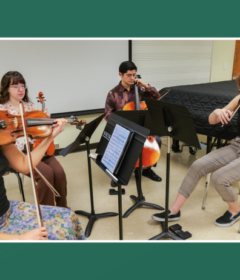Stetson joins in $25M federal grant for ‘Lake to Lagoon’ Conservation Program
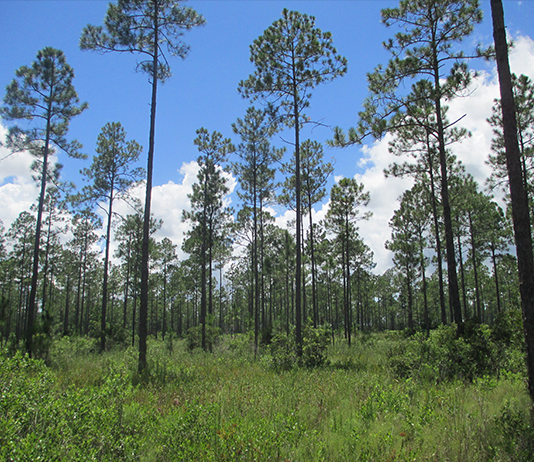
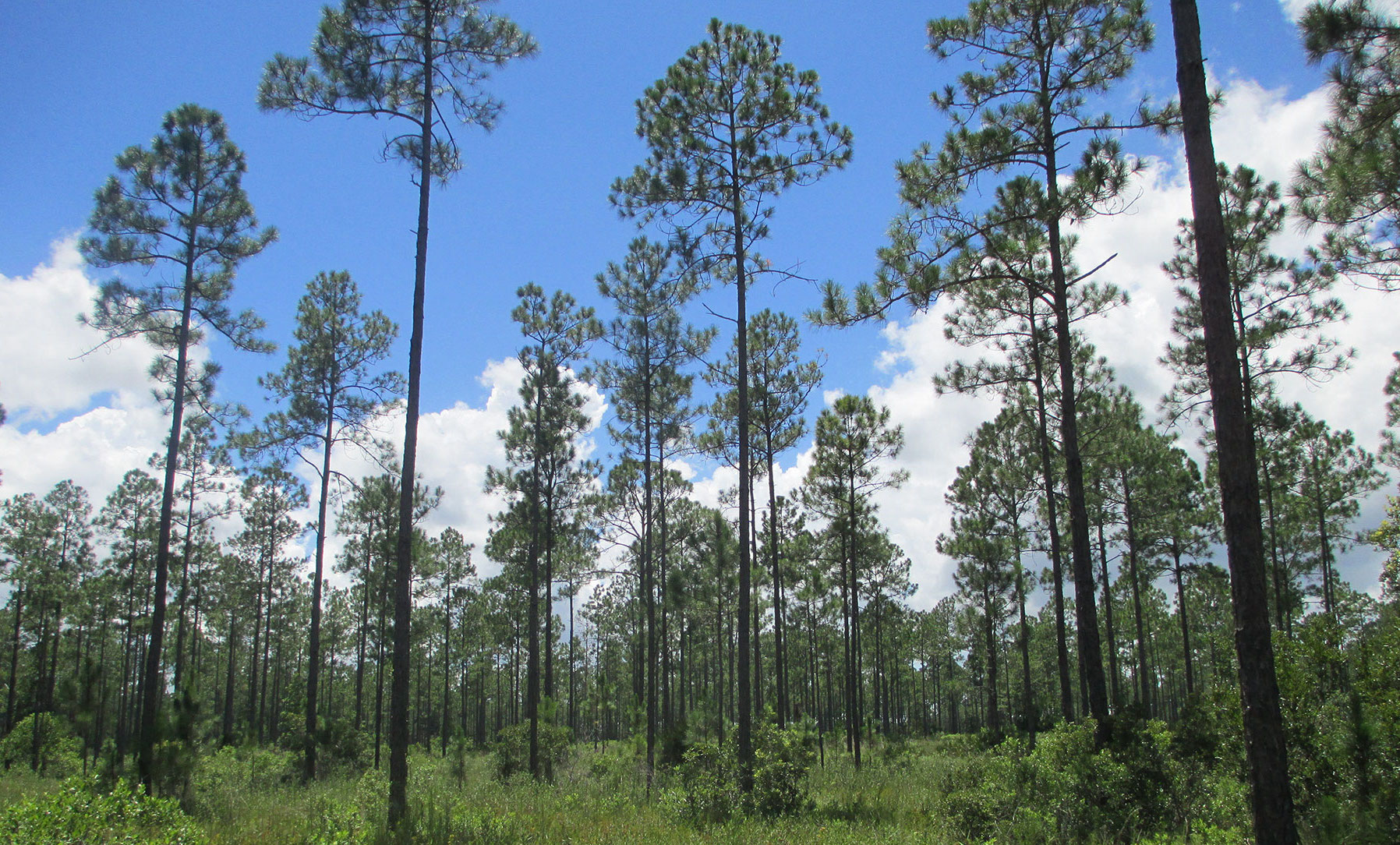
Alachua Conservation Trust (ACT), in collaboration with Volusia County and Stetson University, has been awarded $25 million from the U.S. Department of Agriculture (USDA) in support of the “Lake to Lagoon” conservation program in Volusia, Lake and Flagler counties.
The new award is part of the Natural Resources Conservation Service (NRCS) Regional Conservation Partnership Program (RCPP), and one of 81 funded projects totaling $1.1 billion nationwide. These USDA awards support the adoption of research-based land management practices and advance land protection to promote the coastal and inland resilience of East Central Florida.
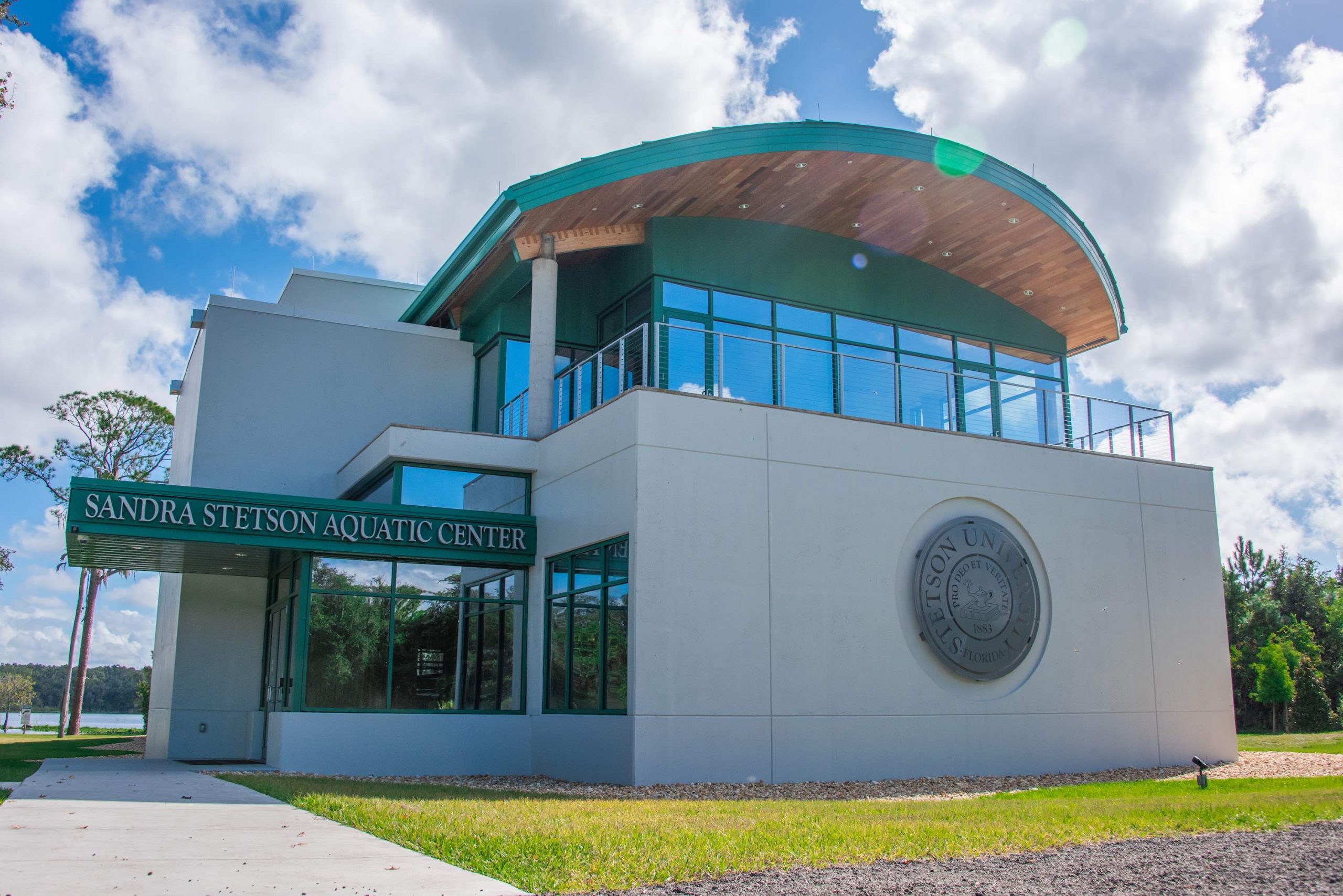
ACT leads the Lake to Lagoon partnership, which includes state and federal agencies, local government, nonprofit organizations, academic institutions and private stakeholders. Volusia County is the largest contributor, with significant commitments from the County’s Volusia Forever program.
The Lake to Lagoon RCPP builds on existing State and County land protection programs to leverage Federal funding for conservation easements to protect environmentally sensitive lands. In addition, it will accelerate Volusia County’s working lands protection program, and will spearhead a new land management program available to regional landowners. Collectively, the RCPP partner organizations bring over $25 million in match contributions to this five-year program, for a combined total commitment of over $50 million. This is the third RCPP award granted to ACT, and builds on existing partnership projects elsewhere in North Central Florida.
“We are thrilled to receive this RCPP award,” said ACT Executive Director Tom Kay. “As one of Florida’s fastest growing areas, the Lake to Lagoon region will benefit from expanded conservation efforts for land and resource protection. We look forward to working with Volusia County, NRCS, Stetson University, and all of the partners to implement this program. It takes the combined efforts of public and private partners to implement large-scale conservation and this project provides the foundation for that effort.”
The Lake to Lagoon is a low-lying region of East Central Florida bounded by large interior lakes and rivers and the Mosquito and Indian River lagoons along the Atlantic Coast. The region is home to nearly a million Floridians, as well as a diversity of wildlife, wildlands, rural farms, and timberlands. The Volusia Corridor, a large landscape of natural and rural lands, is a critical piece of the larger Florida Wildlife Corridor. As people continue to move to East Central Florida, the region faces environmental challenges related to storms, droughts, and wildfires.
“The RCPP program is a powerful tool for bringing together multiple partners in the public and private sector to conserve sensitive agricultural lands in Florida,” said Walter Albarran, Acting State Conservationist in Florida for USDA NRCS. “As a recipient of previous RCPP awards, ACT is well positioned to work with its partners to successfully implement climate smart conservation and land management activities that will bolster climate resiliency in the region.”
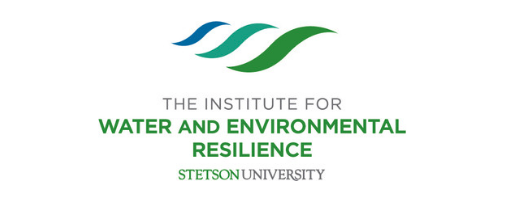
In addition to NRCS, ACT and Volusia county, the Lake to Lagoon RCPP includes ten other organizations: the Florida Department of Environmental Protection, St. John’s River Water Management District, U.S. Fish and Wildlife Service, Florida Fish and Wildlife Conservation Commission, Stetson University’s Institute for Water and Environmental Resilience, East Central Florida Regional Planning Council, North Florida Prescribed Burn Association, Friends of Wekiva, West Volusia County Audubon, and the Riverside Conservancy.
“Volusia County will benefit from this innovative approach to provide farmers, ranchers, and foresters resources to respond to a changing economic and ecological environment as well as implement a comprehensive approach to landscape-scale conservation via easements which protect the land while providing the landowner financial compensation,” said Land Acquisition Manager Tim Telfer. “This partnership also allows us to leverage local taxpayer dollars earmarked for the Volusia Forever program to provide a significant return on investment for our local taxpayers. This program also aligns with the Volusia County Council’s strategic goal to enhance fiscal stewardship through the development of public-private partnerships that use local funds to leverage resources from outside funding partners.”
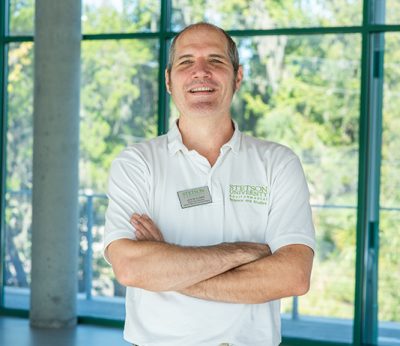
“Stetson University’s Institute for Water and Environmental Resilience (IWER) is proud to serve as a partner on the Lake to Lagoon RCPP,” said IWER Executive Director Dr. Jason Evans. “The RCPP program harnesses the power of partnerships for the benefit of our shared environment, leveraging Stetson’s contributions in outreach, education, and scientific research to further conservation efforts in the Lake to Lagoon region.”
The RCPP program will start in 2024 and bring new and expanded conservation resources to the Lake to Lagoon region through 2029.
To learn more, please contact ACT at [email protected] or (352) 373- 1078.
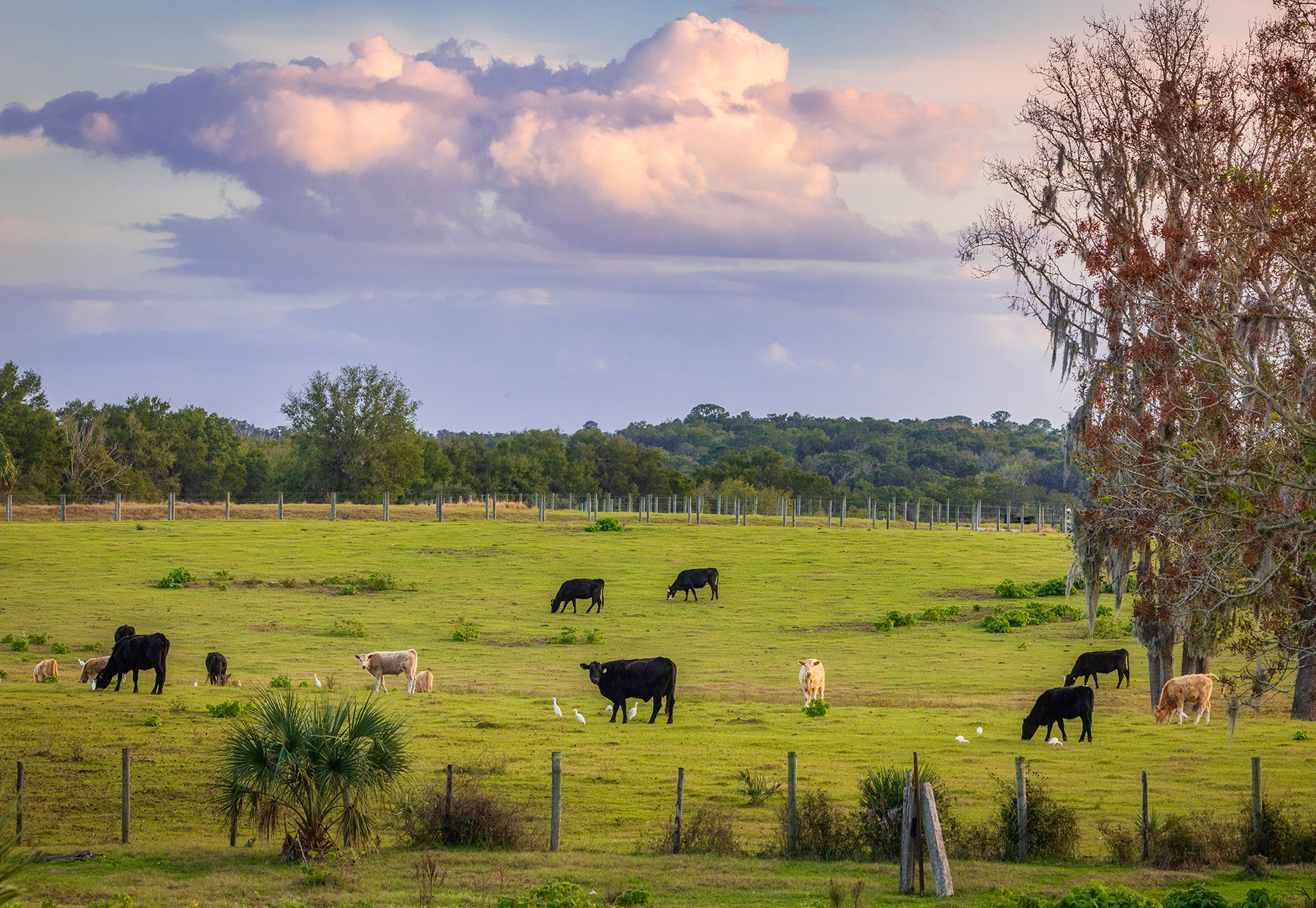
About Alachua Conservation Trust
ACT is an accredited regional non-profit land trust working to protect the natural, historic, scenic and recreational resources in and around North Central Florida. Since 1988, ACT has been instrumental in facilitating the conservation of nearly 57,000 acres of Florida land, including the direct purchase and protection of nearly 25,000 acres. ACT primarily works in 16 counties, owns and manages over 6,000 acres, and has collaborated with private landowners to protect an additional 6,446 acres through conservation easements. Learn more at www.AlachuaConservationTrust.org.
About Volusia County Forever
Volusia Forever was created in 2000 when the citizens of Volusia County voted to tax themselves .2 mills over 20 years to protect the county’s natural biodiversity. Voters renewed it for another 20 years during the November 2020 election. To stretch these dollars as far as possible, Volusia Forever forms partnerships with federal, state, water management district and local agencies that are committed to protecting natural resources. Approximately 55,000 acres (fee-simple and less-than-fee) have been acquired since the beginning of the program.
The mission of Volusia Forever is to finance the acquisition and improvement of environmentally sensitive, water resource protection, and outdoor recreation lands, and to manage these lands as conservation stewards in perpetuity. Taxpayers can track expenditures of these local and federal funds on the county’s accountability and transparency dashboard at: https://www.volusia.org/services/community- services/resource-stewardship/volusia-forever.stml
About the Stetson Institute for Water and Environmental Resilience
The Institute for Water and Environmental Resilience (IWER) at Stetson University is a leading interdisciplinary environmental institute, bringing together advanced research and leaders from government, nonprofits and businesses to offer creative solutions to today’s complex environmental challenges. IWER builds on the interdisciplinary expertise of Stetson’s faculty and engaged student learning to promote policies and practices to responsibly manage water and natural resources in Central Florida and beyond. Located on the shores of beautiful Lake Beresford, IWER is housed in the Sandra Stetson Aquatic Center, featuring a field station, laboratory, meeting rooms, outdoor classrooms, and botanical garden and trail highlighting native Florida plants. Follow us on Facebook and watch for our public workshops on topics ranging from sustainable landscaping to climate change.
About NRCS RCPP
Since inception, RCPP has made 717 awards involving over 4,000 partner organizations. Inflation Reduction Act Boosts Voluntary Conservation Programs. Through the Inflation Reduction Act, USDA has enrolled more farmers and more acres in voluntary conservation programs than at any point in history, following a backlog that has existed for years. In 2023, USDA enrolled nearly 5,300 additional producers in conservation programs across all 50 states (above what otherwise would have been possible through Farm Bill and appropriations funding), which will provide significant climate mitigation benefits. This includes:
- $100 million through the Agricultural Conservation Easement Program (ACEP);
- $250 million through the Conservation Stewardship Program (CSP); and
- $250 million through the Environmental Quality Incentives Program (EQIP).


